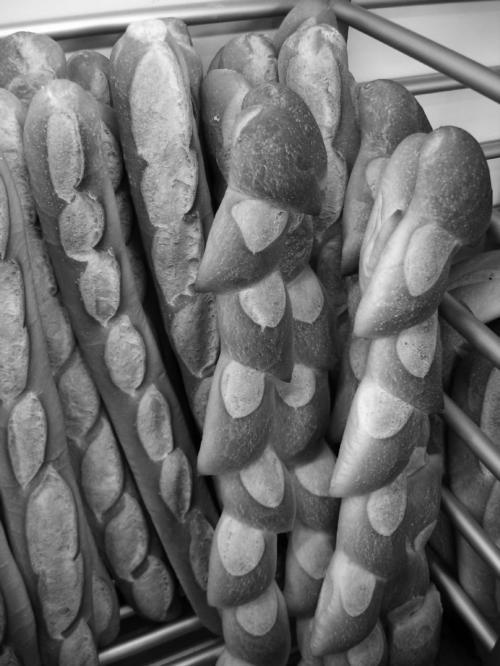
News
Summers Will Not Finish Semester of Teaching as Harvard Investigates Epstein Ties

News
Harvard College Students Report Favoring Divestment from Israel in HUA Survey

News
‘He Should Resign’: Harvard Undergrads Take Hard Line Against Summers Over Epstein Scandal

News
Harvard To Launch New Investigation Into Epstein’s Ties to Summers, Other University Affiliates

News
Harvard Students To Vote on Divestment From Israel in Inaugural HUA Election Survey
Polytechnique: Broadening Borders

Carried away by the throbbing Italian voice that filled the entire Bastille Opera house and hung quivering in the air, I forgot for a moment to pay any attention to the French subtitles displayed over the magnificent stage. When the voice died away and the silence was finally broken by thunderous applause and the oddly restrained enthusiasm of “Bravo! Bravo!”, I joined in and clapped till my palms stung, only noting (with a laugh to Thibaud) the absence of any American cheering or whistles. I was studying abroad in France at École Polytechnique and having the time of my life, exploring new interests and widening my horizons.
École Polytechnique was established in 1794, five years after the furies of revolution toppled Louis XVI and his queen Marie Antoinette from the French throne. Eleven years later, under Emperor Napoleon Bonaparte, it became a military academy. Now, although its students still attend formals in uniform, it is the number one school in France, and grooms leaders for careers in science, business, and politics. Former President Valéry Giscard d’Estaing is a Polytechnicien, as were auto baron André Citroën and scientists Siméon Poisson, Augustin Fresnel, Henri Becquerel, and Henri Pointcaré. Each year, the top five hundred science and economics students in France join the community in Palaiseau, and after graduation, they continue on to the upper echelons of institutions across Europe.
As a military and science school, Polytechnique has a slightly uneven gender ratio—9:1—and I received a very warm welcome. But not only were the students friendly and eager to include me in their activities and campus life, the administration also went out of its way to make sure that matters went smoothly, picking me up from the Metro when I first arrived and even helping me arrange an independent internship alongside my classes.
Over the course of my five-month stay, I was able to attend operas in Paris, join the fencing team, take horseback riding lessons, visit Germany and Spain, and spend hours wandering around the woods near the campus engaged in heady philosophical conversations in French. Since returning, I have found that my life here is much richer for the experience and that thanks to having studied abroad, I have been able to take much better advantage of the opportunities offered at Harvard.
In the hustle and bustle of Cambridge life, classes, and exams, it’s easy to let the urgent squeeze out the important. In France, I was deliberately given very nice classes, such that I had time to start exploring spontaneity and life outside of the problem set. One week, I decided—at the last minute—to attend a talk by President Sarkozy on affirmative action. Another time I restructured my afternoon in order to listen to former President Giscard D’Estaing speak on the European Union.
Despite my taking on an intense class load again this semester, this flexibility carried over and has enabled me to make the most of my time since returning to Harvard. I’ve begun to take time to glance over the house list and to read over emails of upcoming IOP events, and despite assignments, I’ve rescheduled my day in order to go see General Petreaus speak on Iraq, to see Shakespeare’s Hamlet, to enjoy a live bluegrass band, and to take advantage of senior thesis talks and half-price student tickets to Don Giovanni in Boston.
My time in France gave me a broader perspective on culture and globalization. Besides developing a lively appreciation of most things French—cheese, fashion, their high regard for reason, their enjoyment of life—I also began to realize just how American I actually am. At home, it’s easy to be struck more by the plethora of differences between myself and my fellow citizens, but while abroad it came home to me how much I like the confident, rough and tumble, self-made, “can-do” attitude that’s part of the United States. Is this confidence a little arrogant? Probably. But it’s charming, too. Very.
Besides gaining a broader understanding of cultural differences, I had hands-on experience with international networking. Towards the end of the winter, École Polytechnique invites about a hundred of the most important companies in Europe to campus for their yearly job fair. I was able to interact with recruiters from over a dozen different firms, and many of these asked for a copy of my resume and that I keep in touch. Although I had scarcely given the option any serious thought prior to my time abroad, it is now more probable than not that I will end up working in Europe for a while after graduation.
These are just of a few of the ways that study abroad can give you a richer experience at Harvard and broaden your perspective on life—besides, of course, giving you the chance to develop wonderful memories and friends across the Atlantic. I would strongly recommend a stint overseas to any of my friends—science concentrators like myself or otherwise. So, if you are ever given the opportunity to spend some time at École Polytechnique, absolutely don’t hesitate to do so. And if you do, please bring me back some cheese.
Karin M. Jentoft ’10 is an engineering sciences concentrator in Dunster House. She studied at École Polytechnique during the fall semester.
Want to keep up with breaking news? Subscribe to our email newsletter.
